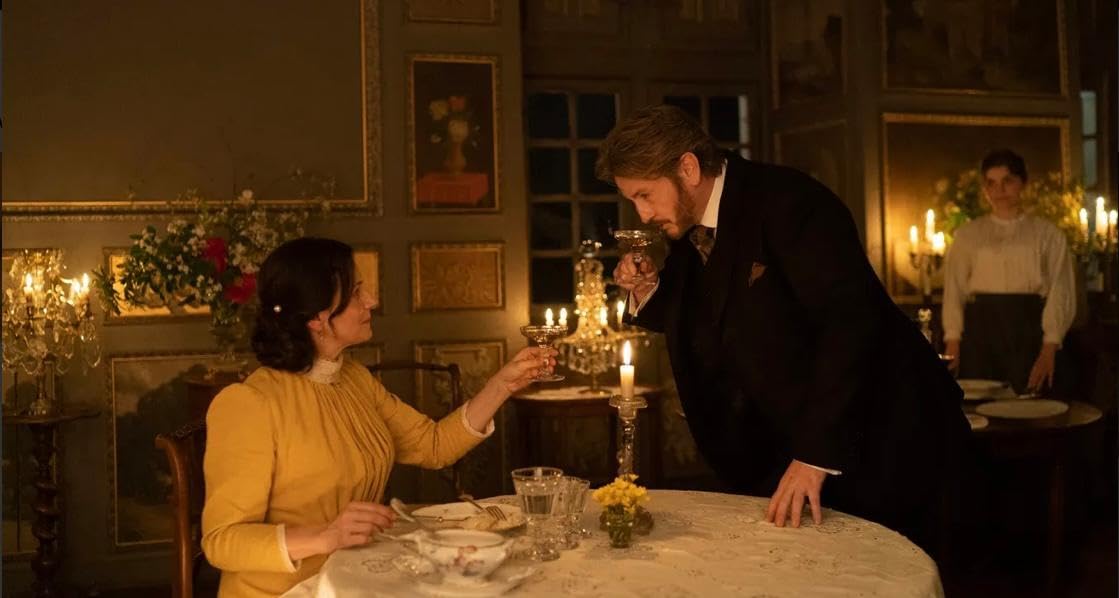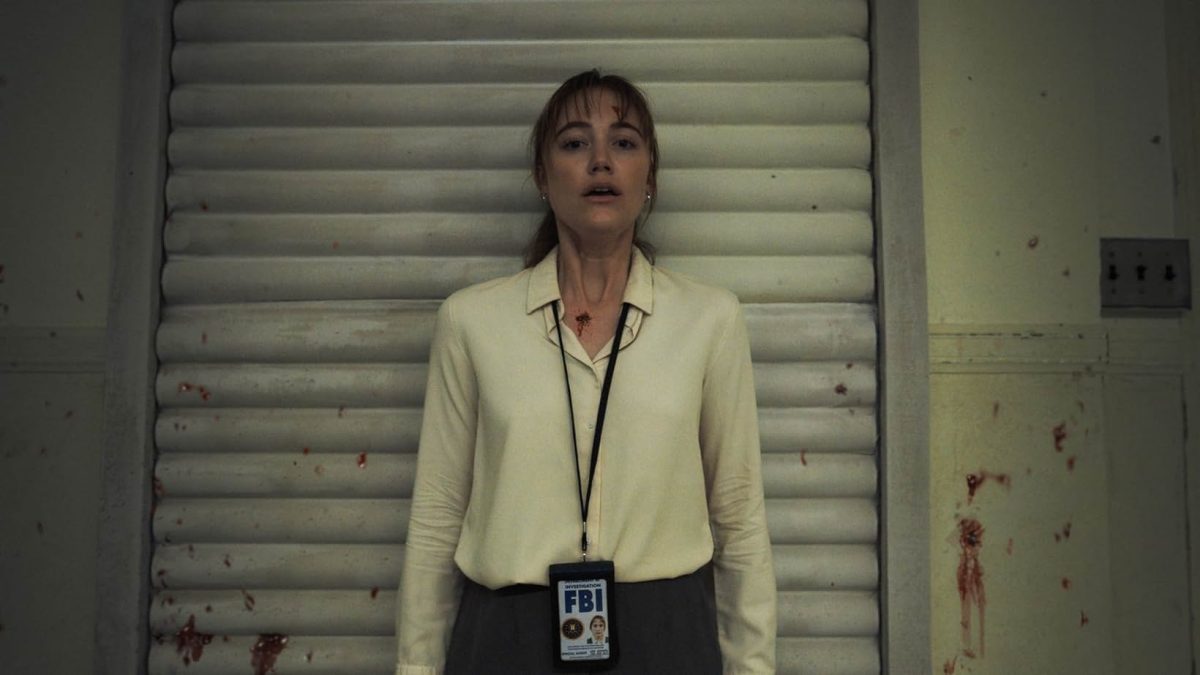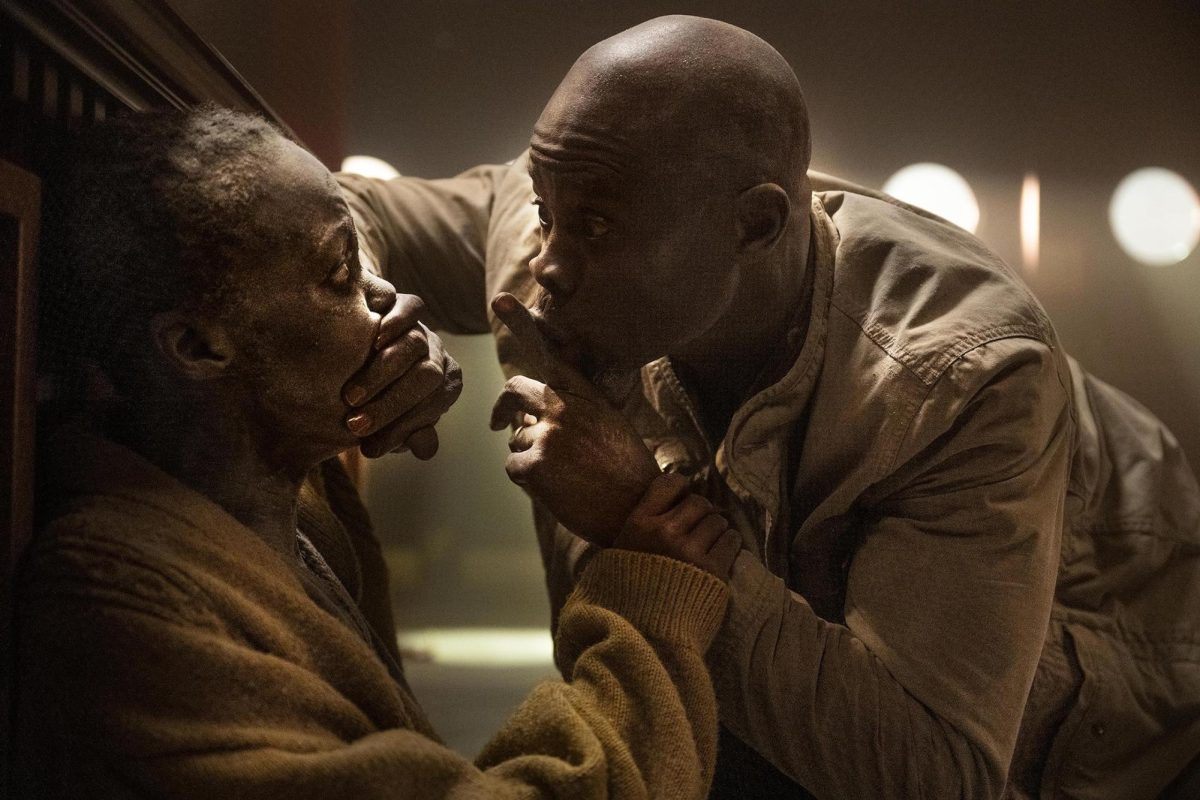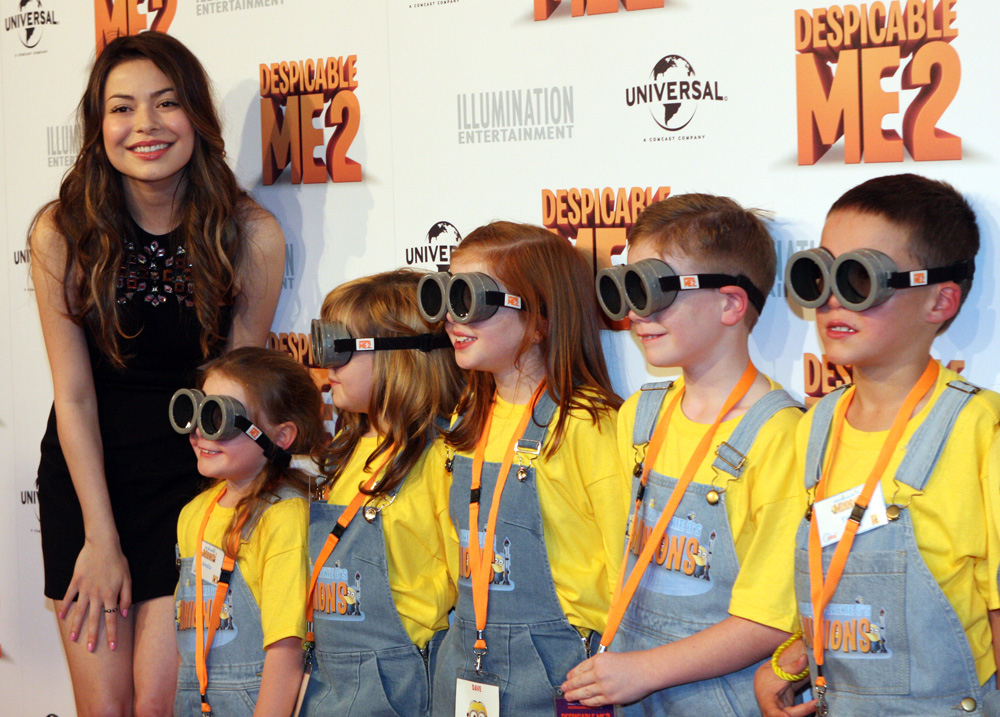Rating: 8/10
“The Taste of Things,” directed by Trần Anh Hùng, is a satisfying and emotional look at how the artistry of cooking reflects itself in the metaphysical composition of our lives.
The film follows the relationship of Eugénie (Juliette Binoche), a chef for Dodin (Benoît Magimel), a notable gourmet. Light on plot, the film is far more interested in exploring the romance and affection between the two characters through the ethereal lens of food and nature.
The result is uniquely affecting, if hard to fully comprehend. “The Taste of Things” is foregrounded by the senses.
Get The Daily Illini in your inbox!
Hùng foregrounds the atmosphere of the remote 19th-century French countryside over the traditional constraints of narrative. From the sizzle of meat in a hot pan to the chirping of birds off-frame, the film’s character is conveyed through a powerful sense of place.
A scene midway through the film clearly evokes this feeling. As Dodin and Eugénie walk lovingly following a celebration, the two comment on their relationship and their lives. Dodin claims they are in the autumn of their lives, while Eugénie proudly retorts that even to her death she will be in the summer of her life.
The two stay fairly small within the frame, surrounded by the sea of flowers and nature bathed in a warm golden light. With such a simple compliment, Hùng says so much about the two and the ultimate reason they care so deeply for each other.
Food is the star of “The Taste of Things,” maybe even more so than the two fantastic leads. The opening stretch of the film, playing out over the course of a half hour, is entirely dedicated to the preparation and execution of a multi-course meal among friends.
We watch as Dodin, Eugénie, assistant Violette (Galatea Bellugi) and Violette’s nièce, Pauline (Bonnie Chagneau-Ravoire), work simultaneously, creating dish after dish. Hùng emphasizes the painstaking detail and engineering that goes into each dish’s recipe while never letting go of the inherent beauty that comes from this creation.
Throughout these sequences, the camera moves around the space with grace and fluidity. Compositions organize themselves within the process of cooking such that they always feel natural and expressive, never forced.
By interspersing the scenes in the kitchen with a gathering of friends joyfully reacting to each new dish that is served, Hùng shows the palpable impact resulting from the work that went into each aspect of the meal.
Part of the miracle of “The Taste of Things” is that the film maintains such a virtuosic pedigree for most of the running time.
A scene later in the movie, in which Dodin cooks a romantic dinner for Eugénie, echoes and expands on the opening. Transposing the weight of the couple’s romance into the physical preparation of the meal, the sequence is uniquely intoxicating. The end of the scene is a perfect encapsulation of how the film singularly identifies how something as abstract as love manifests itself so physically into food.
Binoche and Magimiel are also marvelous; Hùng conveys so much from the actors’ body language. Some of the most powerful shots of the film come from the tangible emotion you feel looking at their facial expressions. They also embody the role of the chef in such a specific and detailed way that you fully accept that you are watching people operating at the top of their craft.
Surprisingly, the film is played largely without music. Given the setting and nature of the film’s aesthetic, the decision seemed like a strange one at first. Yet, through the way Hùng uses the absence and presence of the ambient noise from nature and cooking, it becomes clear a traditional film score would have only clashed with the inherent beauty of the setting.
The film does leave some to be desired. Though certainly intentional and undeniably effective, the final act felt distant and difficult to engage with. Though the ultimate resolution is certainly emotionally impactful and well-earned, the straightforward drama of the film’s final stretch feels slightly at odds with the context of the film’s earlier expressiveness.
That’s not to say that a more heightened sense of melodrama would have been more appreciated. In fact, the film’s dedicated efforts to present a real and textured world only amplify its ambition. Compared to films of a similar period or subject, “The Taste of Things” is excitingly subtle and composed. Nevertheless, the film’s ending, though resonant, falls short of the transcendent standard set before it.
Gorgeously made with stunning sequences of cooking and romance, “The Taste of Things” is a movie worth experiencing. The film is a unique and unconventional presentation of how emotion can be expressed through the culinary arts. An ode to cooking just as it is an ode to being in love, “The Taste of Things” impresses.













